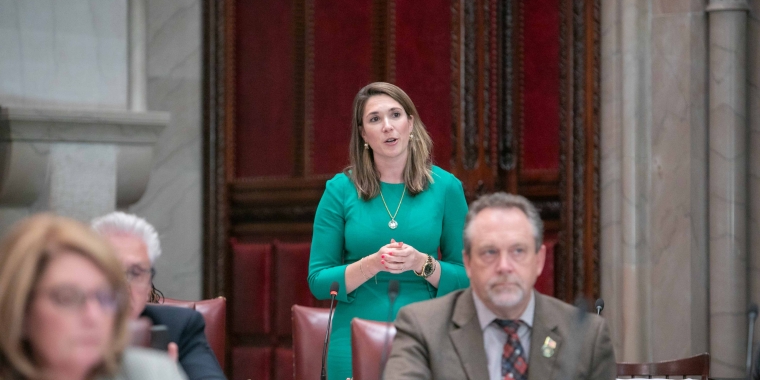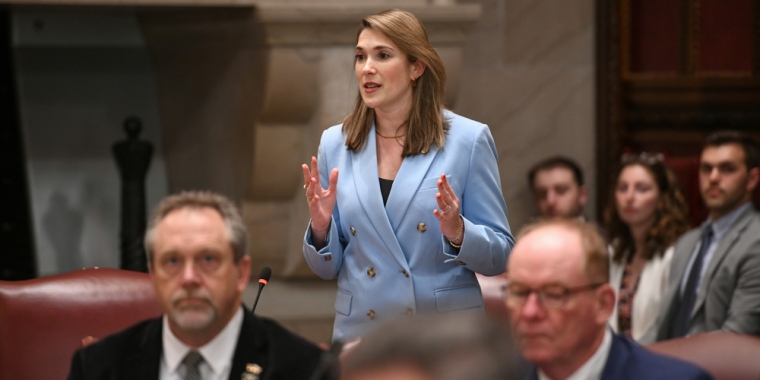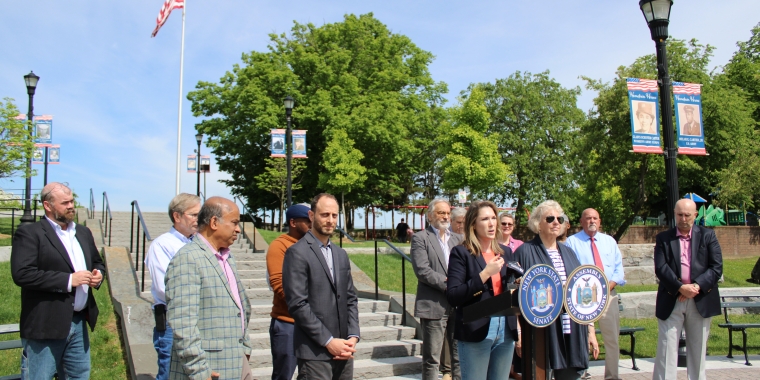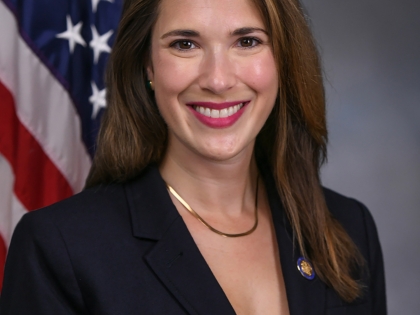
Hinchey’s Hospital Transparency Act Passes Senate as Part of Reproductive Rights and Maternal Health Package Honoring What Would Have Been 51st Anniversary of Roe v. Wade
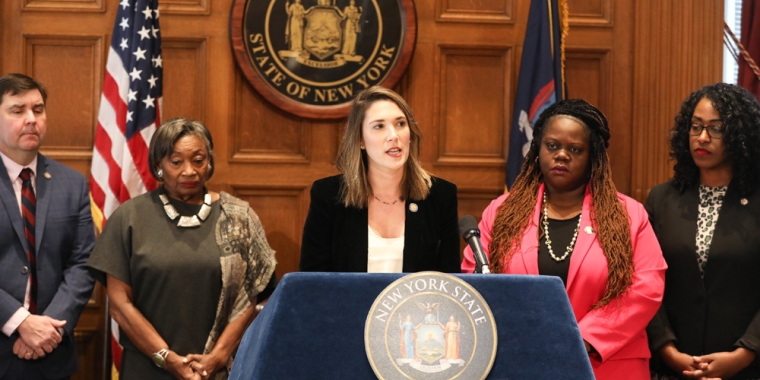
ALBANY, NY – Senator Michelle Hinchey announced that her bill to identify healthcare deserts through the Hospital Transparency Act passed the State Senate today, along with a package of legislation to bolster access to reproductive rights and improve maternal health outcomes. The Hospital Transparency Act (S1003A) would require the State Department of Health (DOH) to collect and annually publish policy-based exclusions from all New York general hospitals on its website and require hospitals to disclose these exclusions as part of its Patients’ Bill of Rights. The bill would also require the DOH to publicly report on the impact of service denials, with a focus on variations in access based on community, race, ethnicity, and socioeconomic status.
Policy-based exclusions are healthcare services that hospitals are licensed to deliver but choose not to provide. In recent years, policy-based exclusions have primarily removed reproductive, gender-affirming, and end-of-life care, leaving New Yorkers without access to these important services.
Senator Michelle Hinchey said, "New Yorkers need to know what healthcare services are available at their local hospital and whether essential services like reproductive care have been removed from their community due to hospital policies. My bill, the Hospital Transparency Act, will finally confront the alarming wave of disappearing services we’ve seen in recent years and help us shed light on the healthcare deserts they’ve created, which significantly impact rural communities where access to healthcare has always been limited. I’m proud to sponsor this legislation and work alongside my colleagues in the Senate Majority to ensure that reproductive rights and healthcare in New York are protected, expanded, and equitable.”
Hinchey's bill aims to pinpoint healthcare deserts in the state and lay the groundwork for improving access to care by informing future legislation and funding support targeted to close disparities. The bill would also give people the tools to determine if local healthcare facilities offer the care they need prior to admission, empowering people to make informed and potentially life-saving decisions about where to obtain care.
The additional legislation passed by the State Senate today with Senator Hinchey’s support includes the following:
- Protecting Patient Health Information (S158B8): Creates a legal framework for individuals to take back and maintain control of their healthcare data. Apps or websites handling diagnoses or storing health information must get clear approval from users to keep that data. Additionally, they must obtain separate consent if they intend to sell the information to third parties.
- Banning Carcinogenic Substances from Menstrual Products (S3529A): Prohibits the sale of any menstrual products containing certain harmful substances with potential carcinogenic effects on the human body.
- Protecting New Yorkers from Special Enrollment Health Insurance Fees (S201): Prevents a health insurance plan from charging extra fees or penalties if an individual signs up for coverage during a special enrollment period where pregnancy is the cited “qualifying life event.”
- Permitting Doulas in the Operating Room of Maternal Care Facilities (S5991A): Ensures that a doula has guaranteed access to the operating room during a C-section delivery when no other support person is available.
- Guaranteeing Access to a Designated Doula (S5992A): Requires maternal health facilities to allow a pregnant person full access to their designated doula during delivery and/or inpatient care post-delivery.
- Establishing a Maternal Health Care and Birthing Standard Workgroup (S7702A): Creates a Maternal Health Care and Birthing Standards workgroup to study, evaluate, and make recommendations on the development of standards to ensure quality, culturally appropriate care for all perinatal and birthing individuals.
- Developing the Uterine Fibroid Awareness Campaign (S3219A): Directs the Department of Health to create and manage a campaign to raise public awareness and educate people about the symptoms, diagnosis, and treatment of uterine fibroids. The campaign will specifically address the higher risk for Black and Brown women to experience this condition.
- Creating a Maternal Care Mobile App for Medicaid Recipients (S7700A): Authorizes the Department of Health to create and operate a prenatal and postnatal care mobile application for Medicaid recipients receiving prenatal and postpartum care.
- Requiring Maternal Mortality Data in Informational Materials (S3610): Aims to enhance transparency regarding racial disparities in pregnancy and birth outcomes by providing certain information about the facility to prospective maternity patients at all hospitals and birthing centers.
- Developing Maternal Depression Screening Guidance for New Moms (S2039A): Instructs the Department of Health and the Office of Mental Health to develop guidance and standards for including maternal depression screenings in regular prenatal and postpartum care. Additionally, they are directed to identify and share training materials for supporting these screenings on the Department's website.
- Establishing the Reproductive Freedom and Equity Grant Program (S348C): Establishes the Reproductive Freedom and Equity Grant Program to ensure access to reproductive care in the state. This program allocates funds to reproductive health providers and non-profit organizations whose main role is to support access to abortion care.
###
